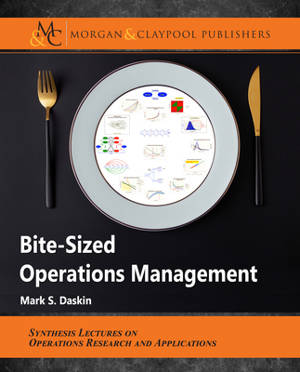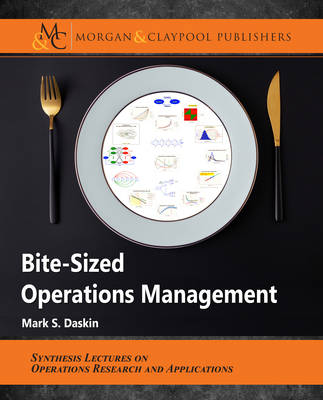
- Afhalen na 1 uur in een winkel met voorraad
- Gratis thuislevering in België vanaf € 30
- Ruim aanbod met 7 miljoen producten
- Afhalen na 1 uur in een winkel met voorraad
- Gratis thuislevering in België vanaf € 30
- Ruim aanbod met 7 miljoen producten
Omschrijving
This text is an introduction to Operations Management. Three themes are woven throughout the book: optimization or trying to do the best we can, managing tradeoffs between conflicting objectives, and dealing with uncertainty. After a brief introduction, the text reviews the fundamentals of probability including commonly used discrete and continuous distributions and functions of a random variable. The next major section, beginning in Chapter 7, examines optimization. The key fundamentals of optimization--inputs, decision variables, objective(s), and constraints--are introduced. Optimization is applied to linear regression, basic inventory modeling, and the newsvendor problem, which incorporates uncertain demand. Linear programming is then introduced. We show that the newsvendor problem can be cast as a network flow linear programming problem. Linear programming is then applied to the problem of redistributing empty rental vehicles (e.g., bicycles) at the end of a day and the problem of assigning students to seminars. Several chapters deal with location models as examples of both simple optimization problems and integer programming problems. The next major section focuses on queueing theory including single-and multi-server queues. This section also introduces a numerical method for solving for key performance metrics for a common class of queueing problems as well as simulation modeling. Finally, the text ends with a discussion of decision theory that again integrates notions of optimization, tradeoffs, and uncertainty analysis. The text is designed for anyone with a modest mathematical background. As such, it should be readily accessible to engineering students, economics, statistics, and mathematics majors, as well as many business students.
Specificaties
Betrokkenen
- Auteur(s):
- Uitgeverij:
Inhoud
- Aantal bladzijden:
- 193
- Taal:
- Engels
- Reeks:
Eigenschappen
- Productcode (EAN):
- 9781636392318
- Verschijningsdatum:
- 29/09/2021
- Uitvoering:
- Paperback
- Formaat:
- Trade paperback (VS)
- Afmetingen:
- 190 mm x 235 mm
- Gewicht:
- 344 g

Alleen bij Standaard Boekhandel
Beoordelingen
We publiceren alleen reviews die voldoen aan de voorwaarden voor reviews. Bekijk onze voorwaarden voor reviews.











